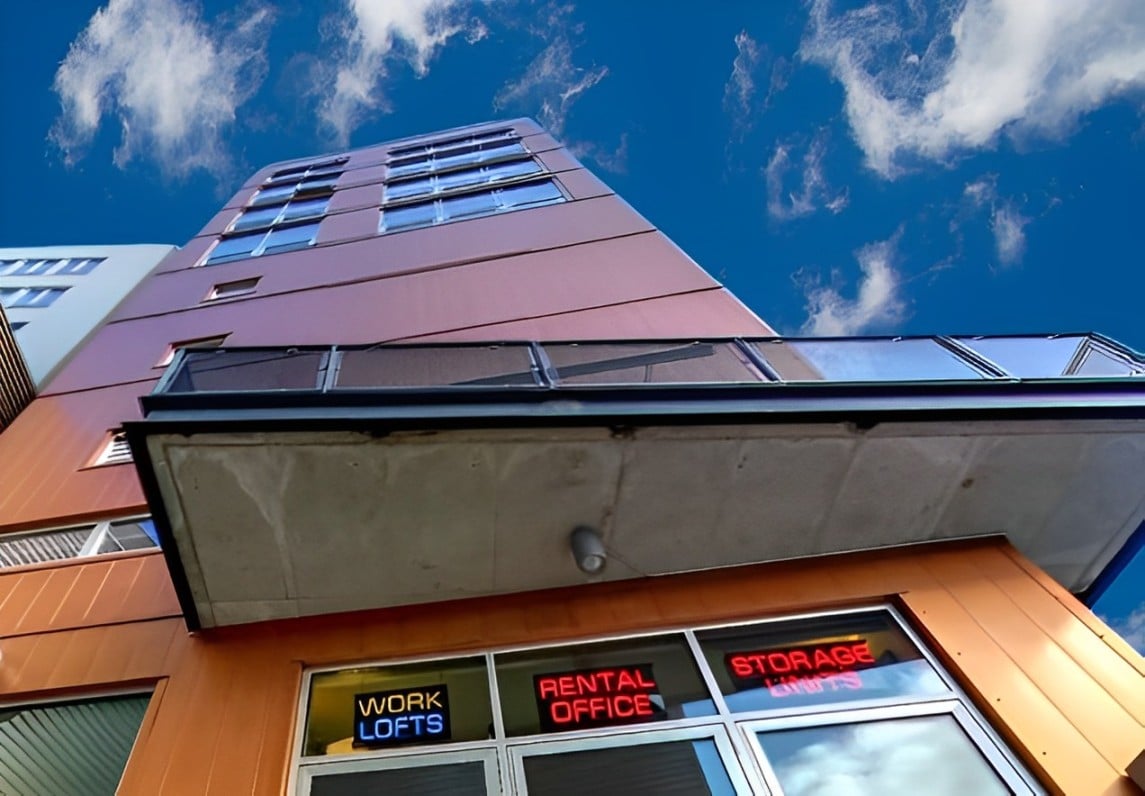May LWT – Anne Mari DeCoster, COO, Storelocal
By Erica Shatzer
Though spring is the season for growth and rebirth in nature, as well as a time when people tend to tackle renovations and maintenance projects, COVID-19 has forced many businesses across the country to focus on maintaining productivity and operating amidst an uncertain economy with frequently altering mandates and regulations from the local, state, and national government.
To say it’s been a trying time for many would be an understatement, as few people in this country can recall a situation that has ever had such far-reaching implications as the ongoing pandemic.
While self-storage facilities do in fact provide necessary services to numerous essential businesses, including storage space, package acceptance, and postal services, it is likely that few self-storage sites have been able to continue operating as “normal.”
In fact, it’s probable that new protocols were implemented and enforced for the protection of both employees and tenants. Even the prepared folks with procedure manuals for various emergency situations likely had to fill in some blanks or revise their plans to fit these unique circumstances.
Managing From Afar
Besides restricting site access, closing offices, disinfecting frequently used surfaces, and encouraging tenants to make electronic payments, many self-storage operators have had to rely on various technologies to remain open and not risk contracting or spreading the highly infectious virus.
In particular, the ability to manage self-storage facilities remotely has become a necessity. No longer an optional capability for finicky owners or those on vacation, nowadays a business’ livelihood may very well depend on it.
“There’s a greater need than ever for remote management,” says Anne Mari DeCoster, chief operating officer of Storelocal, a co-op owned by independent self-storage operators.
Due to the mandated social distancing, as well as stay-at-home orders, remote management enables operators to conduct business from the comfort of their home offices. Depending on the systems they have in place at their facilities, they can access reports and email, watch video surveillance footage, overlock delinquent units, send payment reminders, and pretty much any other aspect of self-storage facility management without stepping foot on the actual property. In addition, they can have incoming calls forwarded to their personal mobile devices and set up various automations to streamline daily, weekly, and monthly tasks.
Speaking of mobile devices, the pandemic has proven how vital wireless technologies and the internet can be to operations. For instance, business that have online options in place have a clear advantage over those that do not offer online reservations, rentals, and payments. What’s more, keyless entry systems are obviously helping reduce the spread of COVID-19 and other ailments because tenants are not required to touch keypads or doors. The same is true for payments made over the phone and online, as all forms of money (cash, cards, and checks) can facilitate the spread of germs.
These features are necessary components of what DeCoster calls a “touchless move-in” process. And she notes that the vendors providing those business elements, many of which are vendor members of Storelocal, are “twice as busy as ever,” due to the recent, unprecedented increase in demand. DeCoster also mentions that Storelocal’s sister company, Tenant Inc., has been developing a software, called Hummingbird, that will enable self-storage operators to remotely manage their properties. According to DeCoster, Hummingbird will be available in late spring/early summer; co-op members will receive preferential pricing for the intuitive software that even includes a facial recognition feature as an additional layer of site security.
“Necessity is the mother of invention,” says DeCoster. “And we aim to provide the products and service Amazon-trained consumers have come to expect.”
In other words, the ability to conduct quick and complete transactions online has become essential to businesses. Self-storage is not an exception. Therefore, it is more important than ever to enable customers to perform the entire rental online, including purchasing retail items and signing up for tenant insurance or protection.
Be Flexible And Knowledgeable
Of course, when it comes to operating in uncertain times, those who manage to stay flexible and up to date with changing regulations will fair better than the rest. DeCoster states that self-storage operators are in a unique position to “help more,” because early data during the COVID-19 crisis indicates that the self-storage asset class is the third least affected property type in commercial real estate in this economic downturn. Only cell towers and server farms are currently impacted less than self-storage. Though self-storage businesses could still experience flat or declining profits due to a recession, their losses tend to be significantly less than other property types.
For that reason, most self-storage operators have the opportunity to be more flexible when it comes to payments. DeCoster mentions that some self-storage facilities are extending late fees and auction deadlines to provide tenants with more time to make payments and avoid racking up additional charges. Obviously, you still have a business to run, but a little good will can go a long way, especially when temporarily unemployed tenants may be facing tough decisions about which bills to pay. Besides offering payment extensions or accepting partial payments, downsizing financially strained tenants to smaller units may be another viable option.
In addition to being flexible with tenants, DeCoster adds that it’s imperative for self-storage operators to understand the new laws that have been passed during the pandemic. There are many resources available through the industry’s national and state associations, as well as Mini-Storage Messenger and Storelocal, that explain and detail the recent legislation, including a temporary rule to the Family and Medical Leave Act (FMLA) and other employment-related issues.
Scale Has Perks
Although self-storage businesses may not be as hard hit financially as other sectors of commercial real estate, as noted in the previous section, astute operators know that there’s no time like a downturn to re-evaluate expenses, as reducing costs can help negate revenue loss.
Similar to buying in bulk, economies of scale enable independent operators to purchase products and services at lower rates, thus boosting their bottom line. Co-ops like Storelocal have buying power that rivals that of the REITs and other large operators within the industry. Co-op members can enjoy discount pricing for items they use on a daily basis, such as credit card processing, search engine optimization, management software, and more. Plus, those cost savings do not require self-storage operators to settle for reduced quality.
As an example, one of Storelocal’s member facilities was able to cut its expenses by $400 per month thanks to the co-op’s merchant processing option.
Besides buying power, economies of scale help self-storage operators increase their online visibility, which is critical in this digital age.
“Independent operators need a constant online presence,” says DeCoster, adding that the REITs are able to dominate online because they have the funds to pay for top-ranking keywords, SEO, and pay-per-click advertising.
REITs and other large operators also have brand recognition working in their favor, whereas mom-and-pop operators are likely only known by the locals they serve. While third-party management is one option for operators who are looking for name recognition, there are other ways to better compete with top operators without joining them. For example, Storelocal has rolled out a voluntary branding program for its co-op members that includes use of its brand and website to boost online visibility and convert online leads to rentals.
Be Prepared
Though the coronavirus pandemic and the problems it caused may have put your self-storage business in a tough spot, that doesn’t mean you have to stay there. This is a learning experience for everyone—even those who were the most prepared. And there’s no time like the present to plan the future.
As you determine the best course of action for your current operations, don’t forget to put some serious thought into how you and your business could be better prepared for the next emergency. While toilet paper and hand sanitizer reigned supreme in this scenario, the need for online tools and remote management in self-storage has never been more apparent. Erica Shatzer is the editor of Mini-Storage Messenger, Self-Storage Now!, and Self-Storage Canada
More Content
Popular Posts
The REITs new pricing strategy – lowering...
The self storage industry is in a precarious...
With the approval of both companies’...
Recent Posts
Owning or managing a self-storage facility...
Helen Keller is quoted as saying, “Alone we...
It’s often been said that “opportunity is...
There’s a saying in Florida that there are...
The landscape of the self-storage industry...
Last January, the prime interest rate was...
Many of us are seeking ways to bring in new...














